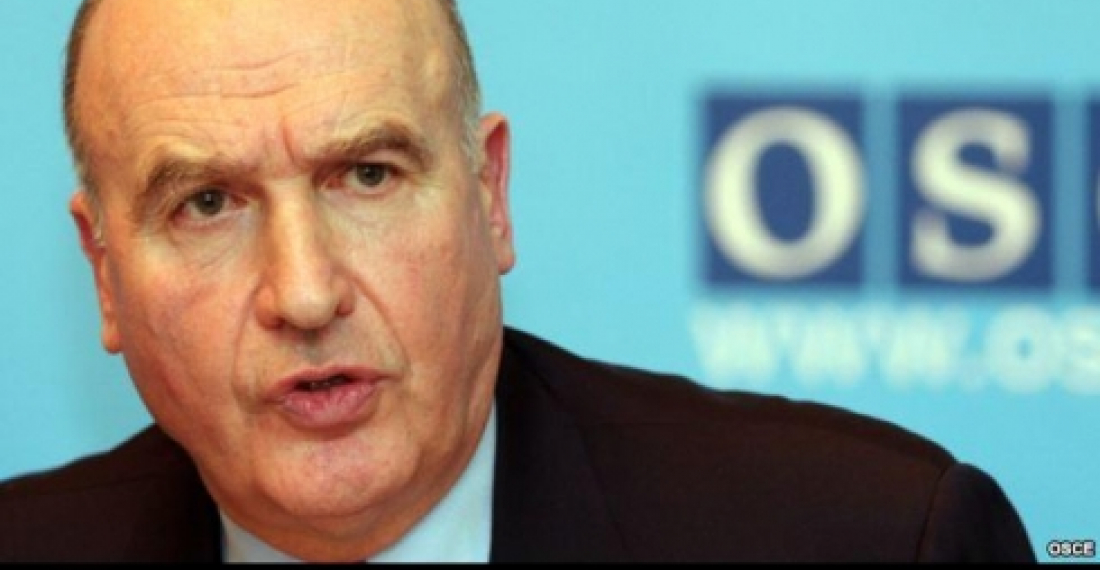The French diplomat Bernard Fassier visited Baku for the last time yesterday at the end of his term as co-Chair of the OSCE Minsk Process dealing with the Nagorno-Karabakh conflict. Fassier met Azerbaijani President Ilham Aliev, Foreign Minister Elmar Mammadyarov and other officials.
Talking to the Press at the end of his visit Fassier defended the work of the Minsk Group.
"Don’t criticize the OSCE Minsk Group co-chairs. We worked hard with the sides to organize the meetings of the presidents and foreign ministers and to discuss all the issues. We presented the basic principles [for talks on a settlement of the conflict] at the end of 2007 and then we presented the updated version of these principles inn 2010. Many discussions have been held on these principles since then. Unfortunately, the Kazan meeting didn’t meet out hopes," he said, referring to the June meeting of the Armenian and Azerbaijani presidents, mediated in Kazan by the Russian president.
"Mediation is a difficult mission, because mediators are criticized by both sides at the same time. It is very difficult to settle such conflicts and to obtain consent to all aspects from everyone participating in the negotiation process. But in any case we mustn’t lose hope. We still hope to achieve progress. For example, none of the members of the international community had been able to visit the occupied areas around Nagorno-Karabakh before the start of my office, but now it is possible and two such missions have been made," Fassier continued.
He said that public diplomacy was a key component to a settlement.
"A meeting between the Azerbaijani and Armenian communities of Nagorno Karabakh is very important... In the past seven years I have felt that preparation for peace can never be sufficient."
"The bloodshed has resulted in such hatred that it is impossible to eliminate it only through negotiations. Peace should also be established between the communities," he said.
Bernard Fassier underlined the role of the media in the establishment of peace between the communities.
He also supported the idea of holding a meeting of the religious leaders. "This will facilitate the formation of a peaceful climate. All channels should be used."
Bernard Fassier will be replaced as French co-chair of the OSCE Minsk Group by Jacques Faure.
source: commonspace.eu with news.az
photo: Bernard Fassier (picture coiurtesy of the OSCE Press Service)







